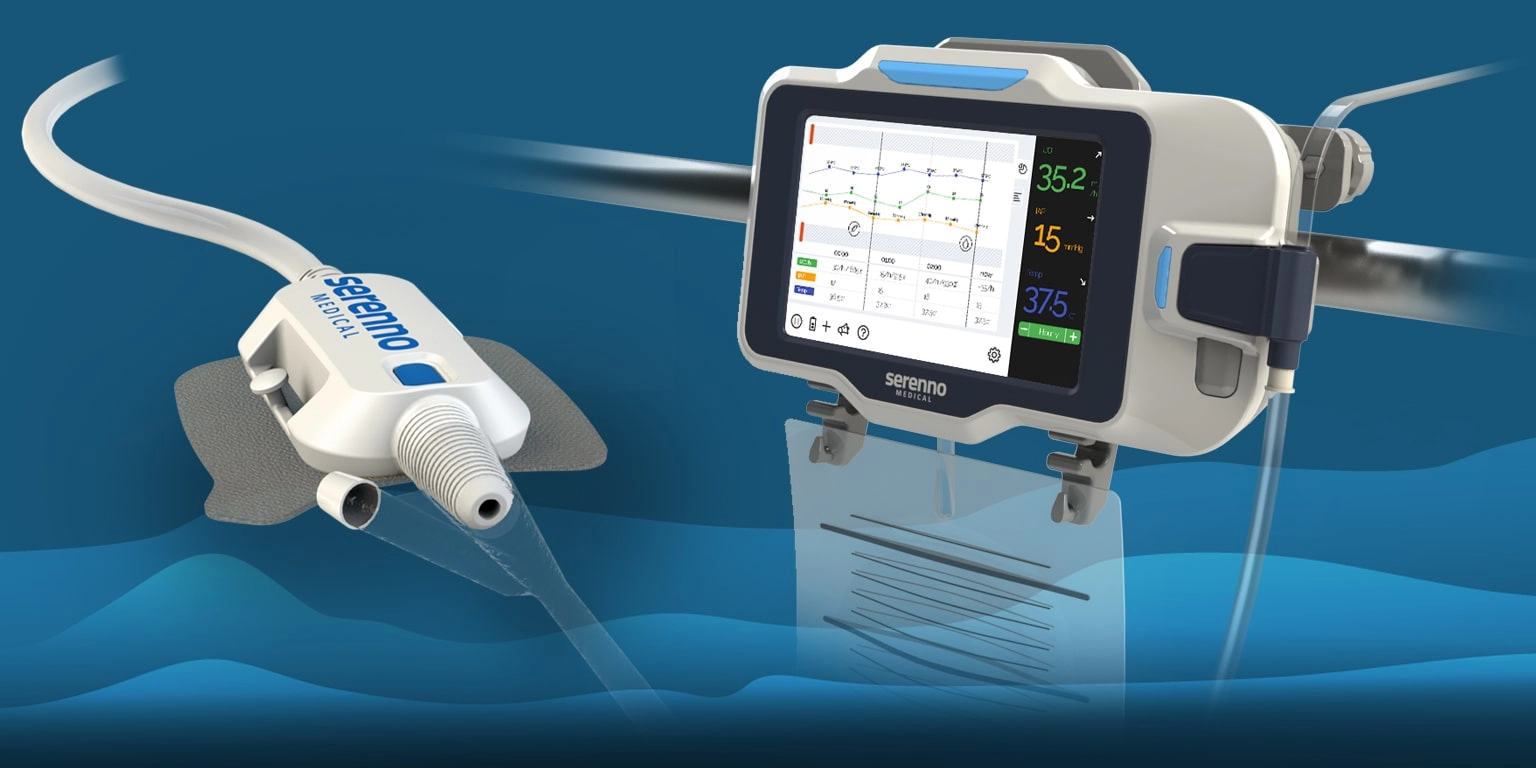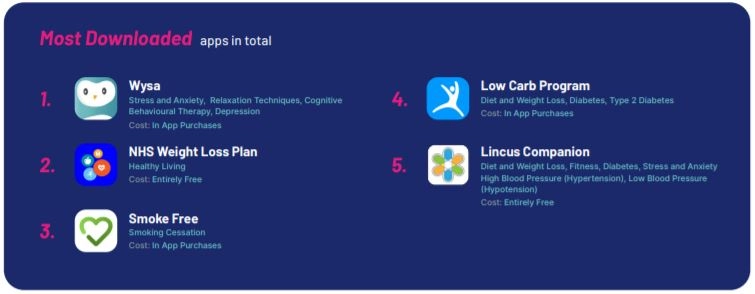

Digital healthcare digest — January of 2021
- New products and launches in the digital health industry
- Digital health startup funding in January
- Digital healthcare market news, deals, and partnerships
- Regulations and clearances in digital health
- Data protection and security threats in healthcare
- Science and business research in digital healthcare
Hi! Here’s to another year of monthly brightest news from the digital health industry: in our digest, we’re talking about startups that get funding, deals, partnerships, and funds report from the market, recent scientific advancements within digital therapeutics, medtech, and other health technologies, and lots of other things. Let’s see what happened in January.
New products and launches in the digital health industry
Ampersand Health from the UK launches an app called My Arthritis DTx for patients with inflammatory arthropathies: through the app, they can know more about their conditions, sign up for behavioral therapy, connect to their doctors, and so on. The tool also tracks their physical and mental health and sleep.
Biobeat from Israeli launches a take-home kit for remote patient monitoring. The kit includes a photoplethysmography vitals monitor and an iOS/Android app; they connect to cloud patient management systems in-hospital, which clinicians use to receive alerts and monitor patients’ states.
Mind Cure, a Canadian mental health company, released a digital therapeutic called iSTRYM that does almost real-time data gathering for patient care, healthcare procedures, and protocols for psychedelic-assisted therapy sessions. Mind Cure aims to help clinicians give more accurate, personalized diagnosis.
Biogen and Apple partnered to do research on cognitive decline. Their goal is to find digital biomarkers that will help track the long-term cognitive performance of iPhone and Apple Watch’s users to detect early signs of mild cognitive impairment.
Digital health startup funding in January
Color, health and genomic startup for population health, became a unicorn in digital health after scoring $167M in Series D. They create an infrastructure for public health initiatives for different health agencies, research organizations, employers, health systems, and stakeholders.
Insurtech Sidecar Health, which lets users choose care by comparing the costs of providers in their area, also becomes a digital health unicorn, raising $125M in Series C.
DXY, a Chinese company that provides a platform for healthcare providers, organizations, and consumers, raised $500M. They’ve started twenty years ago as a community (!) for doctors and other healthcare specialists, and now they have 130M consumers and more than 9k medical organizations as partners. They plan to get more partnerships with hospitals and life sciences organizations and improve their platform for doctors - DXY.cn.
Monument, an online alcohol treatment platform, raised $10.3M in Series A. Monument combines therapy, prescription meds, online support groups, and anonymous forums and is based on CEO’s, Mike Russel’s experience of dealing with an alcohol use disorder.
Nawah Scientific gains $1M in the additional funds. Their mission is to promote scientific knowledge and medical research in Egypt by giving access to their facilities to independent scientists and institutions. They call themselves the “first private multidisciplinary research center in Egypt.”
PatchAi, an Italian startup, raised €1.7 for their AI-driven virtual companion for patients that helps them manage their conditions and adhere to meds whilst giving doctors data for clinical decision support. They plan to use funds to expand internationally.
K Health from the USA raised $132M in Series E. Startup combines a symptom checker app, text-based telehealth, and virtual primary care. They also launched K for Parents, a membership-based and/or one-time offering for families.
India’s MFine - a health startup that uses AI to assist doctors when they’re on virtual appointments with patients, raises $16M. With the new funding, the startup plans to expand its AI capabilities, hospital network, and become the #1 virtual care provider in the country.
Hurdle, a digital health startup (previously called Henry Health), got $5M in seed funding. Their platform is for culturally competent therapy, and right now they’re focusing on providing care for the Black communities in the USA.
Israeli medical device developer, Serenno Medical, got $1.5M investment from Elcam Medical (who is a global producer of med devices), and plans, with this money, to manufacture a digital monitoring device for early detection of acute kidney injury.

Carrum Health, an American service that connects employer-sponsored insurance plans to surgical centers, gained $40M in series A.
A British biotech company Theolytic, that aims to use its phenotypic screening platform to find and develop targeted candidates that are suitable for different cases of cancer, raises $6.8M in Series A.
German drone company Wingcopter, which developed eVTOL (electric vertical take-off and landing) drones for social/humanitarian causes, scored $22M in Series A. They plan to use these funds to expand on healthcare-related applications and assist in the re-distribution of coronavirus vaccines.
Digital healthcare market news, deals, and partnerships
The Vaccination Credential Initiative has been established by major healthcare companies like Mayo Clinic and Epic and tech companies Microsoft and Salesforce. Coalition aims to create a standard model to organize administering COVID-19 vaccines and build trustworthy and verifiable digital records of vaccines through the SMART Health Cards Framework.
Israeli company for sleep apnea called Itamar Medical (they develop WatchPat, a one-use home sleep apnea test that is administered during the night) will acquire FDA-cleared Spry Health to expand into the remote monitoring market and continuously monitor sleep apnea and connected diseases.
Google finally finishes its acquisitions of Fitbit.
Netherland-based global health company Royal Philips will acquire medtech company Capsule Technology for $635M from Francisco Partners to expand its care delivery: Capsule Technology is the most known for a data integration platform that connects med devices and EHRs in hospitals with a vendor-neutral system. Royal Phillips also partnered with Merck, the US science and technology company, to develop solutions for personalized treatment.
Optum will acquire Change Healthcare in a $13B deal to reduce the administrative burden on American healthcare, simplifying clinical, administrative, and payment processes.
A joint venture called Haven with Amazon, Berkshire Hathaway, and JPMorgan Chase is closed after three years of operations. They wanted to create a new model for employee health coverage, but they didn’t, though acquiring “invaluable learnings” and realizing the difficulties of like… healthcare operations? It’s fine.
Preventice Solutions, a company that develops wearables called BodyGuardian with cardiac sensors, will be acquired by Boston Scientific, a company that also does medtech, but on a larger scale, for $925M.
Telehealth service from London, HealthHero, will acquire MyClinic, a telehealth company from Ireland, and will be able to deliver their direct-to-customer service for patients in Ireland.
Examinetic, a provider of occupational health services, partnered with Kenzen, a startup that develops wearables for the reduction of workplace injuries, and made a strategic investment. Examinetics plans to give Kenzen devices to their clients, as they believe it will help clients’ employee health and safety.
DarioHealth will expand its offering for chronic disease management via the purchase of Upright Technology, a startup that specializes in musculoskeletal health and provides its users with devices for posture correction and virtual training. The sum of the deal is $31M.
Him & Hers closed their merger with SPAC and began trading on the New York Stock Exchange. Him & Hers had a 91% revenue increase at the end of 2020, and the listing will help them to expand their telehealth offering and give more products for patients to use for their care, including products in sleep health, fertility, and diabetes.
Hillroom, a medtech provider that specializes in smart hospital beds and other tools for patient monitoring, acquired Bardy Diagnostics, a company that develops cardiac monitoring devices, for $375M. Bardy’s main offering is a CAM patch: it’s placed on patients’ sternum and can detect cardiac activity and its disruptions over seven days. Acquiring Bardy, Hillroom is intended to improve their ECG monitoring & heart conditions early diagnosis.
Amwell and Talkspace plan to exit via IPO (Amwell) and merger (Talkspace’s deal with Hudson Executive Capital to exit together). The trend of digital healthcare companies hitting NASDAQ appears to continue in 2021.
Zilveren Kruis, Netherlands’ largest company for health insurance, and easee, a vision care startup, partner to implement easee’s CE-approved online eye test for employers who are Zilveren Kruis’ clients.
Regulations and clearances in digital health
In April, the NHS will launch a new policy that aims to accelerate the adoption of medtech. They released a mandate with guidance here. The UK also implements a new medical device information system (MDIS) that requires all med devices to be registered with the MHRA through GMDN. If you have no idea what these mean, and you develop medtech in Britain, get here and check out how to register your devices.
Aktiia, a Swiss startup that develops a device for blood pressure monitoring, got a CE mark: Class IIa medical device, which means now they can sell it in Europe. The device is connected to a 24/7 monitoring system that tracks users’ blood pressure when they sleep; they’ve just launched it this month.
Theranica, an Israeli startup that creates Nerivio, a wireless, non-invasive device for electrostimulation that people wear on their upper arm and it helps them with migraines, acute and chronic, received FDA 510(k) clearance.
Data protection and security threats in healthcare
Flo Health, a period and fertility tracking app, settled with FTS after their complaint about Flo disclosing their customers’ data with Google, Facebook, and other third-party companies. Not cool. Flo now must notify their users who have been affected by the leaks and tell third-party companies to destroy all data they received.
Science and business research in digital healthcare
Check out Rock Health’s 2020 Market Insights Report. There’s a lot to know, for instance: on-demand healthcare was the most-funded value proposition in 2020 and got $2.7B of funding through 68 deals, mental health area has seen a 2.9x increase in demand, 2020 is the most-funded year in the history of digital health and many, many other interesting things about the market.
Ada Lovelace Institute launched a project to explore “evidence, risks, and benefits of digital vaccine and COVID status certification methods” across digital health passport apps. They aim to review solutions presented on the market and provide governments with guidelines on ethics, privacy, and the safest vendors.
Research by Consuswide (commissioned by Mobiquity) reports that almost half of British patients over 55 prefer digital means to in-person consultations. There are still barriers to adoption, though, and technical issues are the biggest of them.
Novartis published results for clinical trials for Pear Therapeutics app for schizophrenia, and their solution PEAR-004 has not been effective for reducing schizophrenia symptoms in comparison to placebo. The app has been found safe, though, so the next version will be released. That’s science, hey; no result is also a result.
Digital healthcare vs COVID-19 in January of 2021
A study from Nature found increased mentions of pneumonia in Europe spiking out before the outbreak started in December of 2019. Afterward, these locations became coronavirus hotspots.
Report from British ORCHA, COVID-19: Digital health trends & opportunities for 2021, says health app downloads raised from four to five million every day since January 2020. They also outlined the most popular digital health apps for this year.

Google added a feature to help users find COVID-19 vaccination sites. The program will start in Arizona, Louisiana, Texas, and Mississippi.
Vatic, a UK health firm, launches an on-the-spot-result saliva test for identifying COVID-19 infections. Test is paired with an app, and it can provide a document stating negative results or non-infectious status.
Israeli researchers built a machine learning tool that can predict a positive diagnosis from symptoms; it’s designed to run over the general population through initial screening based on symptoms.
Consumer genomics company 23andMe has released a new interactive tool that allows users to see how various health factors could impact the risk of COVID-19 hospitalization.
Zocdoc and Notable Health both release tools for vaccine administration support.
That’s all January digital healthcare news. If you’re interested in what's happening in this market, subscribe to our newsletter (below) to receive monthly news and useful articles about tech health-specific challenges and solutions for them.
Tell us about your project
Fill out the form or contact us

Tell us about your project
Thank you
Your submission is received and we will contact you soon
Follow us

